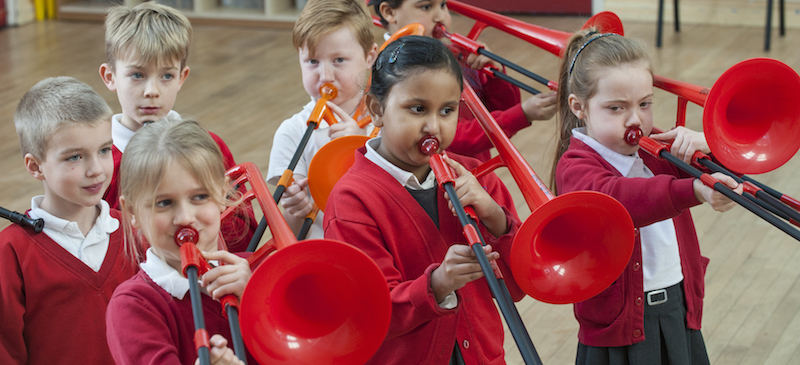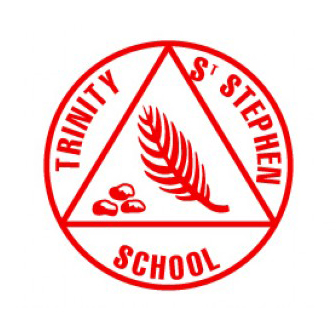
Our school curriculum follows the National Curriculum.
![]() Trinity St Stephen First Church of England School British Values Statement 2015
Trinity St Stephen First Church of England School British Values Statement 2015
The National Curriculum can be found here
TSS School Curriculum
|
Curriculum |
|
Our intent The teachers have worked together to plan a broad and balanced curriculum, following the National Curriculum. In all subject areas subject leaders plan topics to enable children to learn a sequence of key knowledge and skills which build on each other. The curriculum aims to inspire the children to find out about the world around them. Above all it is aimed at providing children with the knowledge, skills and experience to prepare them for life and in particular their next stage of education. At Trinity St Stephen we recognise the importance of becoming confident, resilient, independent learners. We use our 'Learning Muscles' to teach about the skill or tools of learning in all areas of the curriculum. We value and provide opportunities to make choices in our learning. The curriculum is planned to be relevant and set in context to enable the children to see the purpose of new learning. Where possible links are made between different curriculum areas. This often involves visitors and visits either locally around Windsor or further afield. All children are supported to join in by recognising appropriate necessary support beforehand. Trinity St Stephen School Association contributes towards the cost, subsidising the cost of trips and visitors for parents. Good communication and relationships with our parent partners enables us to work together to ensure that no child is disadvantaged due to finances. There may be a requirement for special arrangements such as extra adults on the trip to support children with specific needs or a calming space available. Our inclusive practice always means that appropriate adjustments are considered in the planning phase of all learning experiences. Reading is a vital area of curriculum learning. Children start in Reception by enjoying books of all description. Phonics is taught through the Monster Phonics Scheme. Early reading is taught through a phonetic approach. Children move onto the Oxford Reading Tree Scheme. Children are regularly assessed to ensure the reading material is appropriately matched to their needs and progress can be sustained. We work with a local charity, ABC to Read, to provide additional reading opportunities. |
|
Cultural capital We believe that every child is unique. Children and their cultures are valued and celebrated within our inclusive approach. We endeavour to support every child to become confident and resilient learners and provide them with a range of experiences which excite and inspire them alongside the knowledge gained within our school curriculum. Experiences have included theatre performances such as the Young Shakespeare Company to present to Years 3 and 4. We have invited a range of visitors such as a local vet, our local policeman, a local Owl Sanctuary. Children also participate in regular visits. These are connected to topics and have included The Exhibition of Tutankhamun, Windsor Castle and Ufton Court. During the Pandemic we continued finding ways of making learning real by participating in virtual workshops organised by Chertsey Museum and Windsor Castle. We are pleased to be using trips and visitors to enrich our curriculum again. Our school association supports this financially and we use our local area as much as possible to reduce the financial burden on parents.
|
|
How are children with disadvantage or SEND supported to be included in all areas of the curriculum? We are an inclusive school, where all are welcome. The school has been awarded the Royal Borough of Windsor and Maidenhead Inclusion Mark (July 2021) Adjustments are made within good quality teaching to ensure all children can access the learning. It is expected that all children benefit from clear communication and preparation for new leaning and experiences. Resources to support everyone in the classroom include: Visual timetables in all classrooms Individual Educational Plans which are clear and well communicated where necessary Planning and preparation to ensure all are included Access to training for staff Working with other agencies such as Shine Team and Education Psychology to improve outcomes for children with SEND. The school invests in the services of a Family Support Worker who works with families to ensure the best possible outcomes for all. A SEND Strategy to support a high quality of provision
|
|
Curriculum Implementation How is the subject taught at subject and classroom level?
Teachers understand pedagogy. They use a range of ways to present new learning understanding that all children learn in different ways. They may prepare visual resources such as presentations and videos, or ask the children to consider a question or investigation, or may be do something practical. The Learning Muscles are introduced throughout every year group. Children learn and practise using the range of tools they have available to further develop learning. The tools are called: Noticing muscle, Persevering muscle, Planning Muscle, Revising Muscle, Questioning Muscle, Capitalising Muscle, Collaboration Muscle, and Interdependence Muscle. Teachers are also aware that the use of learning walls in core areas of the curriculum help the children learning. Relevant learning walls are used in every classroom. There are a number of ways teachers check understanding. They may use carefully constructed and targeted questions, tests and quizzes, observing their approach with tasks and marking. Teachers may ask children to brainstorm facts about a certain topic and revisit after a block of learning to look at progress. Marking and feedback is recognised as a crucial aspect of enabling children to make progress. Marking and feedback is constructive with recognising what has gone well and what next steps look like.
|
|
Curriculum Impact It is essential for pupils to be prepared for the next important stage in their education. Children’s progress is regularly monitored throughout their First School journey to ensure any gaps or declines in progress are quickly addressed. |
Behaviour and Attitudes
|
Behaviour and Attitudes |
|
School is calm and orderly. Children understand behaviour expectations and these are consistent throughout the school. The school focusses heavily on a ‘catch them getting it right’ philosophy and reward and celebration is an important part of school life. The golden rules are displayed in every classroom and children understand the small number of simple rules. The Behaviour Policy is updated and available on the website.
|

